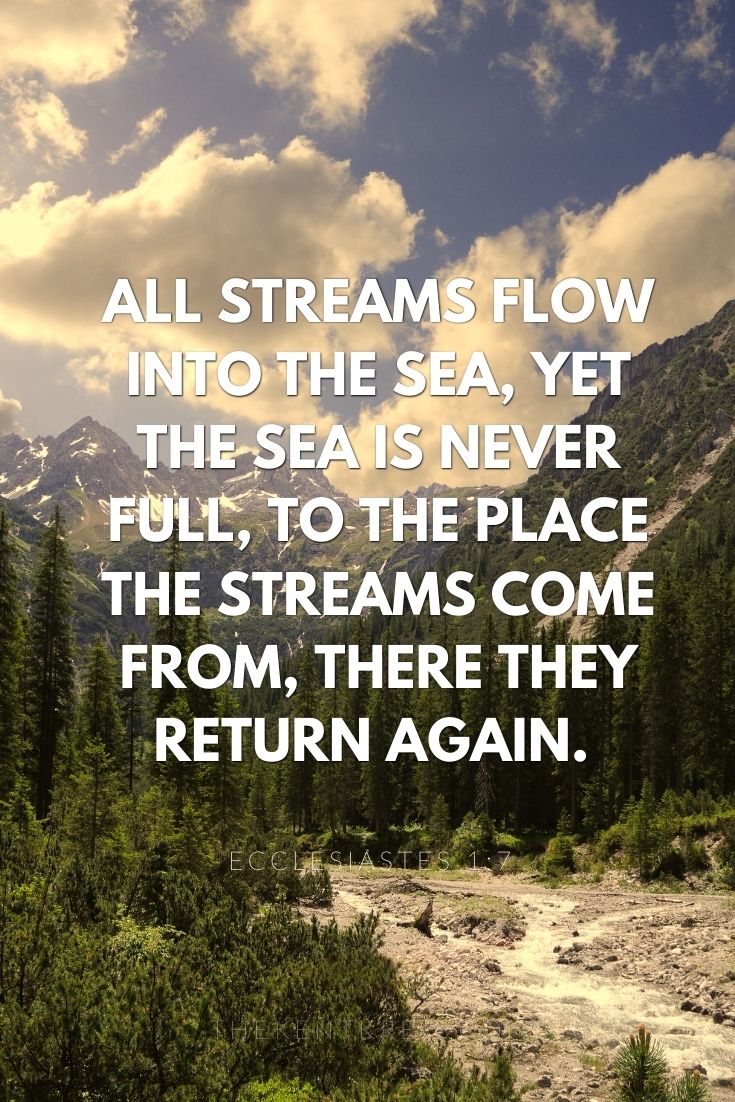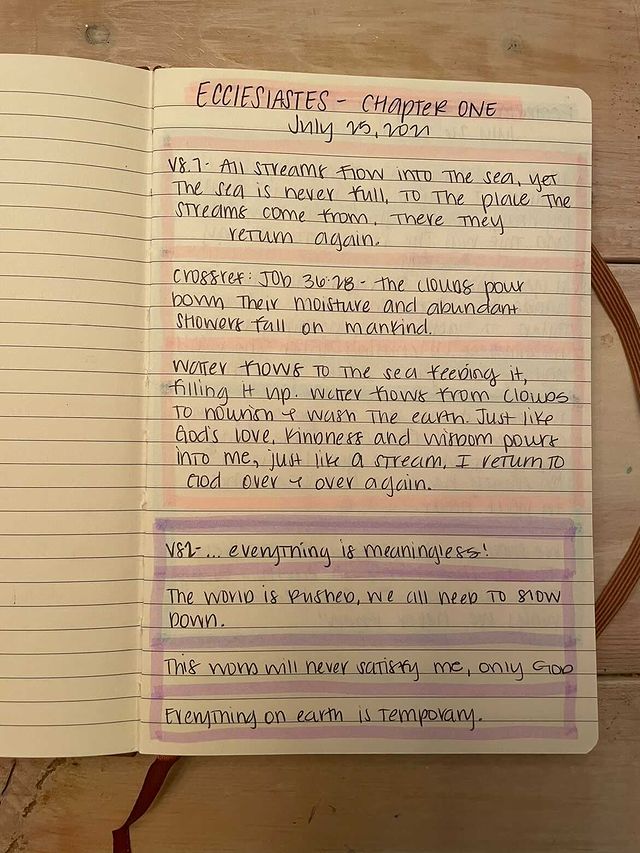|
Week one of Ecclesiastes study, a look into the back story of Ecclesiastes and a dive into a verse or two that resonated with us.
*DISCLAIMER: This post may contain links to our etsy shop. If purchases are made from that link by the consumer (thats you!), proceeds do go to amy kent media. There may also be affiliate links, and purchases through those links may provide us with a small amount of income, at no extra cost to you!intro
It is believed that Ecclesiastes was written by Solomon (son of David, King of Israel). As we study Ecclesiastes, you will see from the beginning that this is a book of wisdom, written by someone who has seen and experienced a lot of life, and is able to look back and see what is truly important in life, versus what we may think is important. I won't bore you with the dates and stuff like that, but according to when Ecclesiastes was written, it would line up right with the later part of Solomon's life, so it would make since!
Not only did the author write with a great abundance of wisdom, he writes with a huge amount of reverence and love for God, some might even say fear. Fear is the foundation of wisdom in this book of the Bible. Poetically written, the point is consistently made to show the difference between a world with God and without Him, or His instruction and purpose on one's life. This contrast shows younger generations of the kingdom (Israel and us) a guide or an example to show how to live life for God and what is important. This week we actually have more than one verse to look at! Key Verses
VERSE 7: All streams flow into the sea, yet the sea is never full, to the place the steams come from, there they return again.
Water flows to the sea feeding it, filling it up. Water flows from the clouds to nourish and wash the earth. Just like God's love kindness and wisdom pours into us, just like a stream pours into a body of water. I return to God over and over again. Cross reference: Job 36:28- The clouds pour down their moisture and abundant showers fall on mankind. VERSE 2: "Meaningless! Meaningless!" says the Teacher. "Utterly meaningless! Everything is meaningless." Literally everything outside of God is meaningless, this tends to be the teacher's theme of the entire book, The term "meaningless" occurs a total of thirty-five times in Ecclesiastes (and once elsewhere, Job 27:12). In the Hebrew language repeating the same word makes it a superlative, meaning it is exaggerated to show how a higher level of comparison. Case in point, Solomon could have had anything and everything his heart desired, He did, actually. However, nothing he purchased, found or was gifted ever brought satisfaction in his heart, at least not for a long term basis. Any pleasures he took part in, did not satisfy, either. All these things were meaningless. The world is so rushed, we all need to slow down, focus on what is important. Everything on earth is temporary. If all these things can't bring happiness, content, and satisfaction, what will? A life with God. This world will never fully satisfy us alone, only God can do that. Cross reference: Mark 8:36-38: What good is it for us to gain the world but forfeit our soul? Do not be ashamed of God in this bad world, and He will not forget!
|
Books of the Bibleshop with us: |














 RSS Feed
RSS Feed